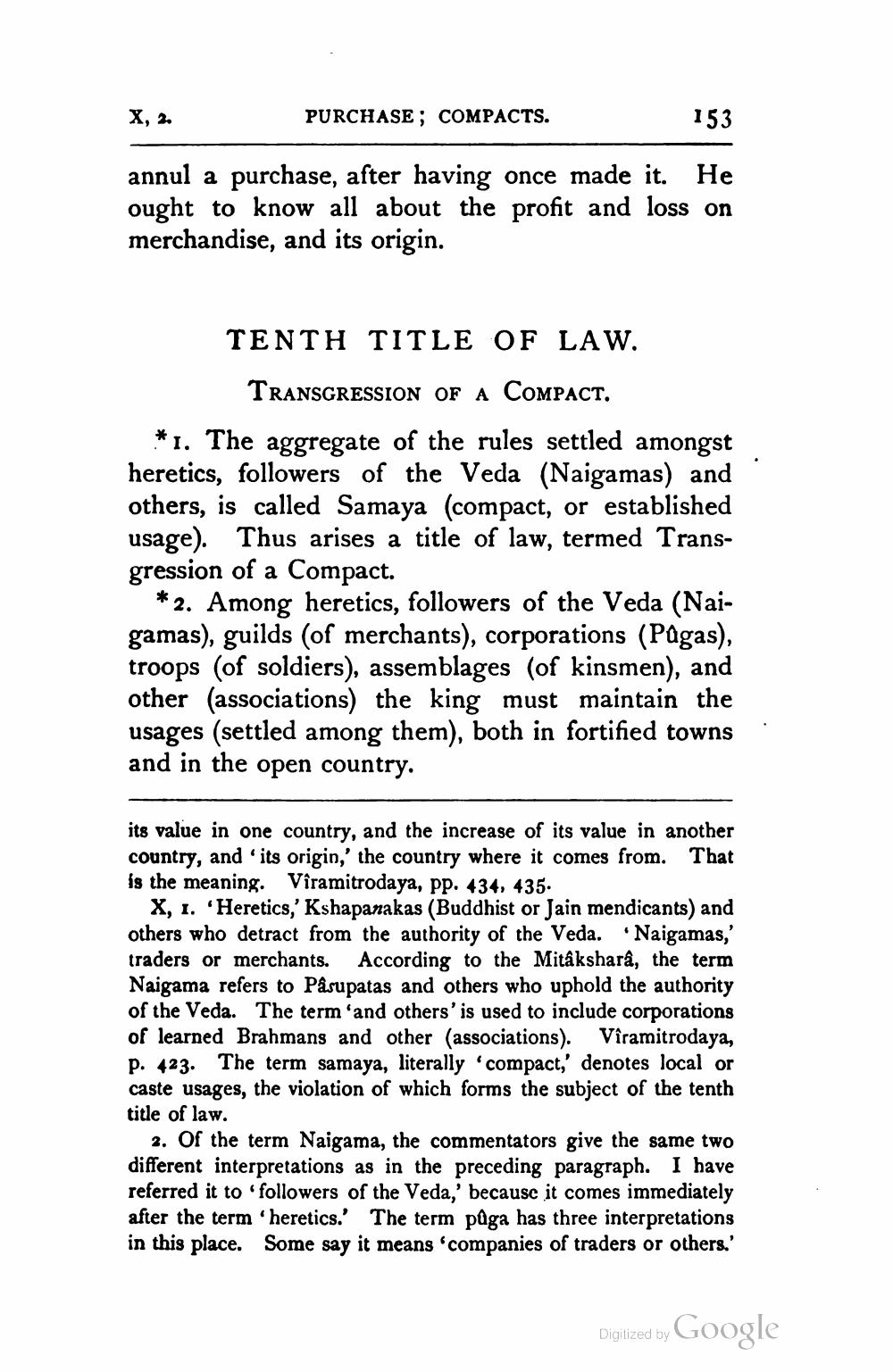________________
X, 2.
PURCHASE; COMPACTS.
153
annul a purchase, after having once made it. He ought to know all about the profit and loss on merchandise, and its origin.
TENTH TITLE OF LAW.
TRANSGRESSION OF A COMPACT. *1. The aggregate of the rules settled amongst heretics, followers of the Veda (Naigamas) and others, is called Samaya (compact, or established usage). Thus arises a title of law, termed Transgression of a Compact.
* 2. Among heretics, followers of the Veda (Naigamas), guilds (of merchants), corporations (Pagas), troops (of soldiers), assemblages (of kinsmen), and other (associations) the king must maintain the usages (settled among them), both in fortified towns and in the open country.
its value in one country, and the increase of its value in another country, and its origin,' the country where it comes from. That is the meaning. Vîramitrodaya, pp. 434, 435.
X, 1. 'Heretics,' Kshapanakas (Buddhist or Jain mendicants) and others who detract from the authority of the Veda. Naigamas,' traders or merchants. According to the Mitâkshara, the term Naigama refers to Påsupatas and others who uphold the authority of the Veda. The term 'and others' is used to include corporations of learned Brahmans and other (associations). Vîramitrodaya, p. 423. The term samaya, literally compact,' denotes local or caste usages, the violation of which forms the subject of the tenth title of law.
2. Of the term Naigama, the commentators give the same two different interpretations as in the preceding paragraph. I have referred it to followers of the Veda,' because it comes immediately after the term 'heretics.' The term pūga has three interpretations in this place. Some say it means 'companies of traders or others.'
Digitized by Google




